
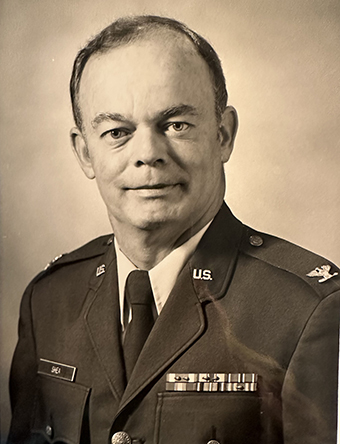
Media isn’t a four-letter word.
That’s the message Dave Shea wanted you — and your boss —
to hear. He spent his entire career spreading that message around, and
demonstrating how, with the proper preparation, and by following a few
simple rules, you can have a productive relationship with the news
media.
Along with his co-author, former Air Force PA John Gulick, Dave wrote
the definitive primer on dealing with the press:
Media Isn’t a Four-Letter Word — A Guide to Effective
Encounters with the Members of the Fourth Estate. Want to better understand the role of the journalist and how to
help ensure a balanced and accurate story?
Media Isn't a Four-Letter Word
is absolutely essential reading.
Colonel Dave Shea was a career public affairs officer and public
relations pro, greatly admired in the PR world for his many
achievements during both his military and civilian careers. He began
his Air Force career in 1959 after graduating from Fordham University
and earning his second lieutenant bars as a distinguished graduate of
Fordham’s AFROTC program.
Reporting to Andrews AFB for his first assignment, Dave had no
intention of staying past his three-year commitment. What he really
wanted was to seek fame and fortune in the broadcasting business and
pursue his dream of becoming the play-by-play announcer for the New
York Yankees. Well, after his Andrews tour he did get into
broadcasting, but it wasn't exactly in the Bronx at Yankee Stadium. It
was in Greece, where the Air Force sent him to be the station manager
of the Armed Forces Radio and Television outlet at Iraklion Air
Station.
His enjoyment of that assignment had him reconsidering his career
plans, and some great subsequent assignments, both overseas and
stateside, sealed the deal. His Air Force career took him around the
world, with overseas tours in addition to Iraklion at Misawa Air Base,
Japan, Osan Air Base, Korea, and his favorite, Ramstein Air Base,
Germany.
When Dave was at Osan, he was sent TDY to Clark Air Base in the
Philippines to support Operation Homecoming — the return of over
300 U.S. prisoners of war from the Vietnam conflict in 1973. Dave
managed one of the biggest media events in Air Force history when the
POWs arrived at Clark, their first stop after leaving North Vietnam.
He was also the public affairs escort for one of the last POW groups
to depart for home, with stops along the way at Hickam AFB, Hawaii,
Wright-Patterson AFB, Ohio, and Andrews AFB, Maryland that generated
intense interest from the media and the American public.
When
Project Blue Book
— the Air Force’s investigation of UFOs — was closed in
December 1969, Dave wrote the press release announcing the termination
and summarizing the project’s findings: after studying over 12,000
reported UFO sightings, no evidence was found that any were
extraterrestrial vehicles, and only 701 of those sightings remained
unidentified. However, as the very busy Project Blue Book
spokesperson, Dave himself did not remain unidentified. Fascination
with the subject continues unabated to this day, and even in
retirement Dave still fielded media requests to share his expertise on
the subject.
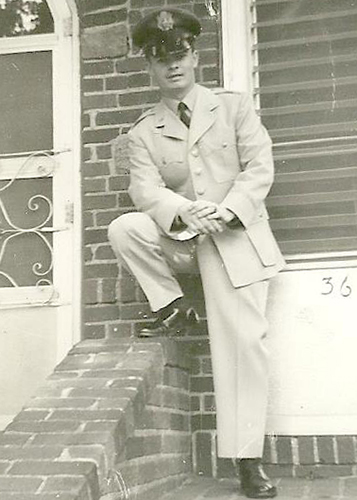
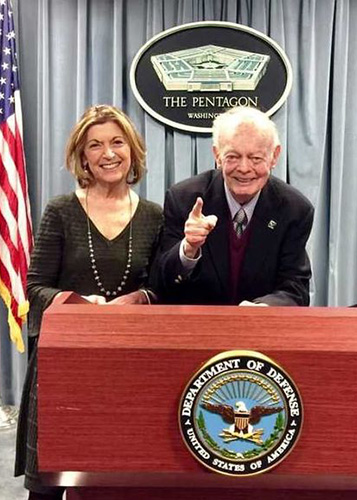
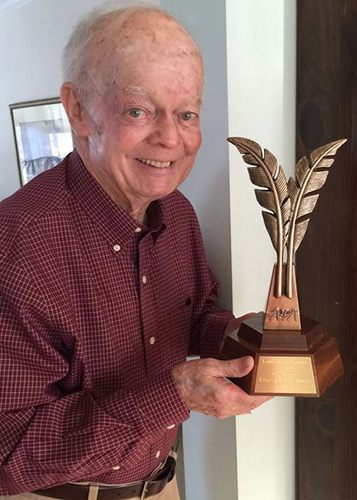
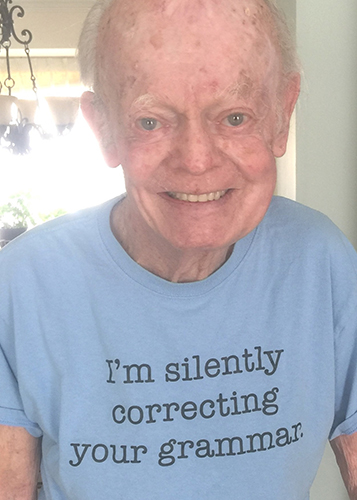
Dave was the PA director at Air Training Command headquarters at
Randolph AFB, Texas in 1979 when the exiled Shah of Iran unexpectedly
arrived at nearby Lackland AFB’s Wilford Hall Medical Center to
continue his recovery from cancer treatment. The Shah’s presence in
the United States at the onset of the Iranian hostage crisis was
highly controversial, and Dave had to deal with conflicting guidance
from Washington about whether reporters would be allowed on base to
cover the story. Working the issue with fellow
Hall of Famer Mike Terrill, who was the PA chief at Lackland at the time, was probably the only
enjoyable aspect of that difficult episode.
Not many people get to be a MAJCOM headquarters PA director, but Dave
was selected for that challenging duty three times. In addition to his
stint at Air Training Command, Dave was the director for US Air Forces
Europe at Ramstein and Air Force Systems Command at Andrews, where he
originally thought his military career would be ending after just
three short years. With one last job, this time at the Pentagon as
director of Defense Information in DoD Public Affairs, those three
years had somehow turned into 29.
Dave retired from the Air Force in 1988, but not from public affairs.
Although that job as the Yankees play-by-play announcer had still not
opened up, Dave nonetheless managed to go on to an award-winning
civilian career. He served as spokesman for the Hughes Aircraft
Company, which later merged with Raytheon Corporation, and became
Raytheon’s Director of Media Training and Development in Washington,
D.C.
Even after writing his book, Dave remained on a mission to make us
better communicators. With posts on Facebook explaining “Today’s
idiomatic expression” and catchphrases like “Write on,” he helped
untangle the confounding rules of proper grammar for his many
followers. Reading witty and informative posts from Dave,
affectionately known as “The Professor,” was like taking a master’s
class in English — and enjoying it.
In 2012, Dave received the prestigious Lauren D. Lyman Award from the
Aerospace Industries Association
for outstanding achievement in aerospace communications. To gain a
greater appreciation of his wit and wisdom, and benefit from the
lessons he learned during Operation Homecoming and the Shah of Iran’s
visit, don’t miss reading
Dave’s remarks when he accepted the Lyman Award.
For even more of Dave's wit and wisdom (or maybe just wit!) read his
Life Is Short article in the Washington Post.
We can all learn from Dave and the lessons he passed on to us from his
illustrious career. The PA career field was exceptionally fortunate to
have a leader and mentor like him, the consummate communicator and
teacher. He left a legacy that few can match.
Write on, Professor.